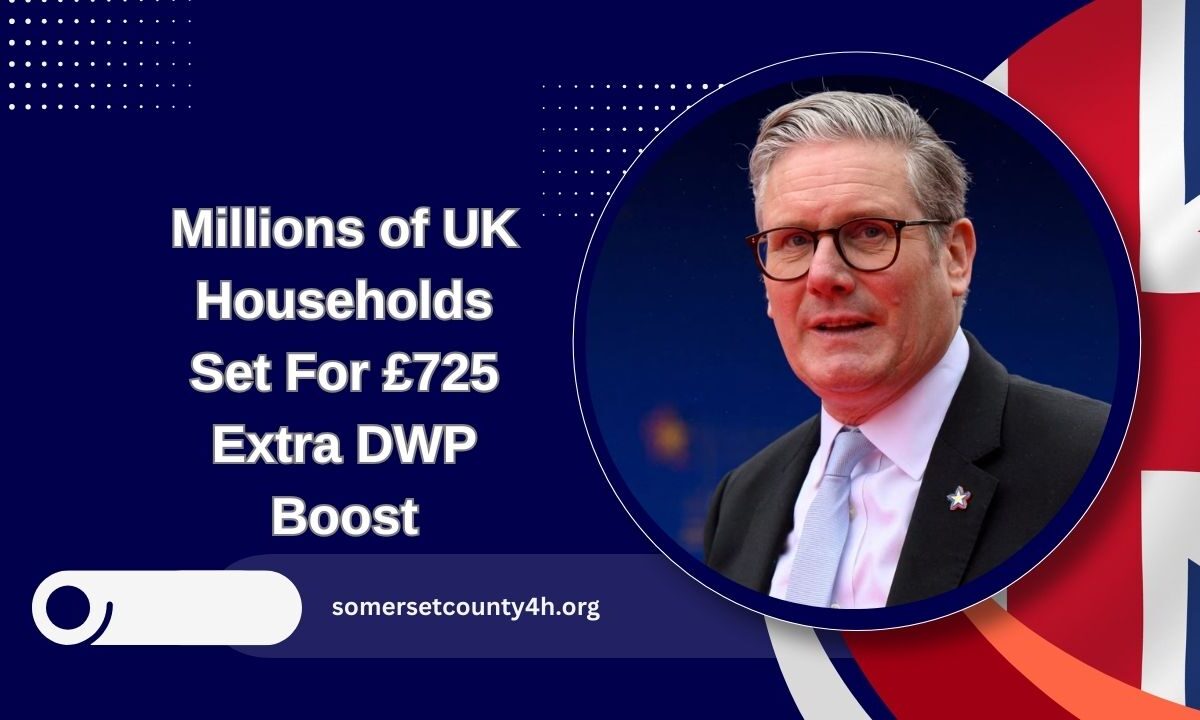In a significant move to reshape the UK’s welfare system, the government has announced that millions of households will receive an annual £725 boost through the Department for Work and Pensions (DWP).
This uplift is part of a wide-reaching set of welfare reforms progressing through Parliament, which aim to increase living standards and provide stronger incentives to work.
This is the largest permanent increase in out-of-work support since 1980, reflecting the Government’s broader “Plan to Change” strategy to modernize the benefits system.
What Is the £725 DWP Boost?
The £725 increase will be delivered through Universal Credit’s standard allowance, rising above inflation annually until 2029-30.
This change is designed to ensure that low-income and out-of-work individuals receive stronger and fairer support.
According to the DWP, a single person aged 25 or over on Universal Credit will see their standard allowance permanently rise by £725 per year by the end of this decade.
Key Highlights of the DWP Boost:
- Annual £725 increase by 2029-30 for eligible Universal Credit recipients
- Applies to single claimants aged 25 or over
- Inflation-proofing for recipients with serious health conditions or limited life expectancy
- Legal protections for disabled people seeking work
- Major investments in employment support and training
Breakdown of the DWP Boost Plan
| Group Affected | Benefit Adjustment | Details |
|---|---|---|
| Universal Credit recipients (25+) | £725 annual increase | Standard allowance increase by 2029-30 |
| Disabled individuals with severe conditions | No reassessment requirement | Legal protection from repeated benefit reviews |
| Seriously ill individuals | Payments to rise with inflation annually | Applies to those with less than 12 months to live |
| Work-ready claimants | Access to job, health, and skills programmes | £3.8bn allocated for support over the current Parliament |
Why Is This Reform Significant?
This reform marks the most significant permanent uplift in the welfare system in over four decades.
The bill, which successfully passed the House of Lords and now moves through its final stages toward Royal Assent, is designed to:
- Encourage more people into work without fear of losing support
- Protect the most vulnerable and those with lifelong health conditions
- Fix disincentives that previously kept claimants trapped in welfare dependency
Work and Pensions Secretary Liz Kendall described the move as one of “fairness and future opportunity,” noting that the changes will allow people to “have a real chance for a better future.”
Support for Disabled People
The reforms introduce significant safeguards for disabled individuals:
- Those with lifelong or severe health conditions will not be subject to reassessments for Universal Credit.
- The Government is launching a review of the Personal Independence Payment (PIP) process, led by Disability Minister Stephen Timms, and shaped in partnership with disabled citizens.
The aim is to remove fear and uncertainty from the system while giving disabled individuals the freedom to pursue work without risk to their benefit status.
£3.8 Billion Employment Support Investment
In parallel, the Government will invest £3.8 billion in employment support by 2029. These funds will:
- Support tailored job training and reskilling
- Provide mental and physical health services
- Help disabled individuals return to work when they are ready
This dual approach balances financial support with practical pathways back into the workforce for those able to participate.
The £725 DWP boost represents a landmark shift in the UK’s approach to welfare. As cost-of-living pressures persist, these changes provide real, targeted financial help for those who need it most, while empowering others to re-enter the workforce safely and confidently.
With legal protections, higher benefits, and new job support systems, this reform package aims to build a more inclusive and responsive welfare system for the years ahead.
FAQs
Who will receive the £725 DWP increase?
Universal Credit claimants aged 25 or over will receive a £725 annual increase in their standard allowance by 2029-30.
Will people with health conditions be reassessed?
No. Those with severe, lifelong conditions will be exempt from reassessments and continue to receive full support.
When will the new support measures begin?
The reforms are currently passing through Parliament and will be implemented gradually, with full financial increases expected by 2029.
